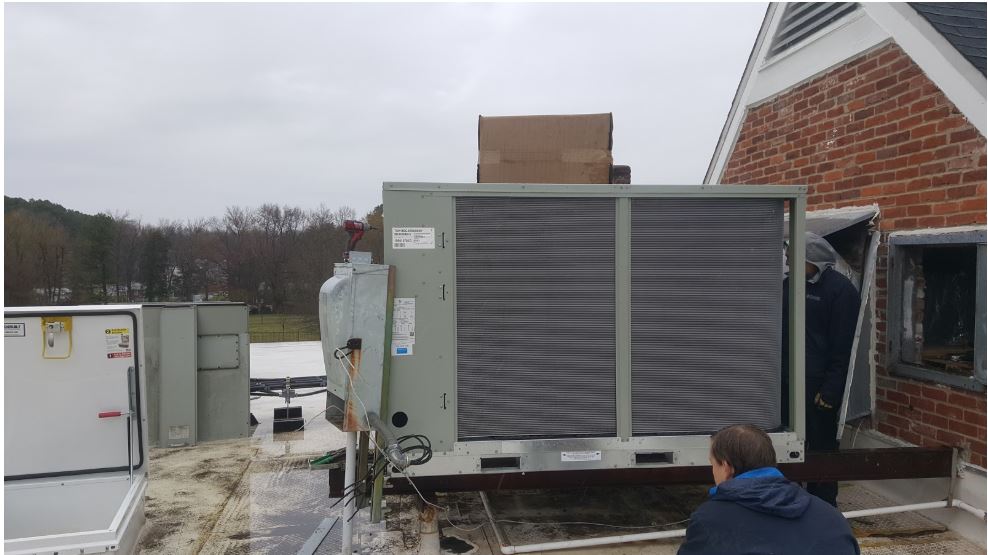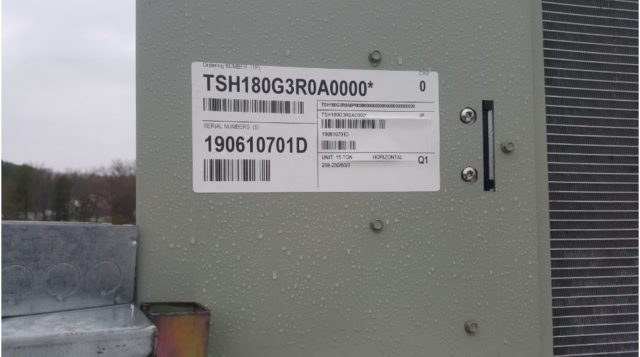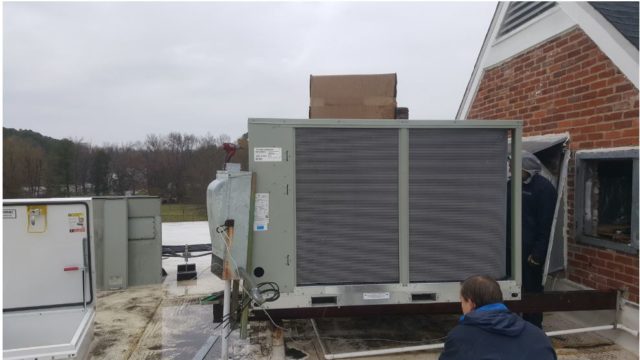
When making any big purchase, it’s best to have options. In the case of replacing a commercial rooftop HVAC unit, building managers will often try to get at least two bids, to make sure they’re getting the right equipment at the right price. When it comes down to the fine print though, how do you know that each bid is comparable, and you’re not looking at apples and oranges? In the case of our client in Alexandria, Virginia, being able to compare different bids meant that they had to find at least one partner who they could trust to help. Can you guess who it was?
Replacing a 15-ton package unit seems simple enough, right? Wrong. When a church in Alexandria, Virginia got several bids for the replacement job, they needed some help understanding the differences between each one. Here’s what we discovered:
Mystery Model Numbers
One of the bids that came in had a unit and model number that was different than what all of the other proposals had included. It turned out that the equipment was an older model, leading to questions like: Why would we replace with an older version? Is this an old or refurbished piece of equipment? Was this piece sitting in inventory? In the end, it just didn’t seem right.

Dotting the I’s and Crossing the T’s
The other astonishing thing that happens with many bids is that the language is vague and doesn’t include everything it should. We’ve already learned the first thing that you should look for — the right specifications, including model and unit numbers. Sometimes, especially with older equipment, you have to go a step further and make sure that the existing system was properly identified.

Another aspect that you don’t want to let fly under the radar? Ensuring that the work will be performed to code. For example, for a package unit replacement, code mandates that there should be a duct smoke detector to check for smoke in the return air supply. In other words, to prevent the risk of air getting pulled from where there is a fire. Another example is making sure that there’s a float switch, or a mechanism to shut your system down in the case that a drain is blocked near where condensation is being collected. While an inspector should catch these sorts of oversights, it’s always best to make sure the language is included in a contract in the first place.
Comfortable Spaces = Trust
In the end, our client decided to use Trimark Mechanical for one simple reason: trust. In the end, it came down to working with a company they could trust.
Are you coming up on a big replacement and want to know whether you’re making the right decision for your space? Or, maybe you’re not sure whether your system is on its last leg. Many churches, schools, daycares and community-based organizations qualify for a no-cost site inspection. Get in touch today! 703.891.4600.

